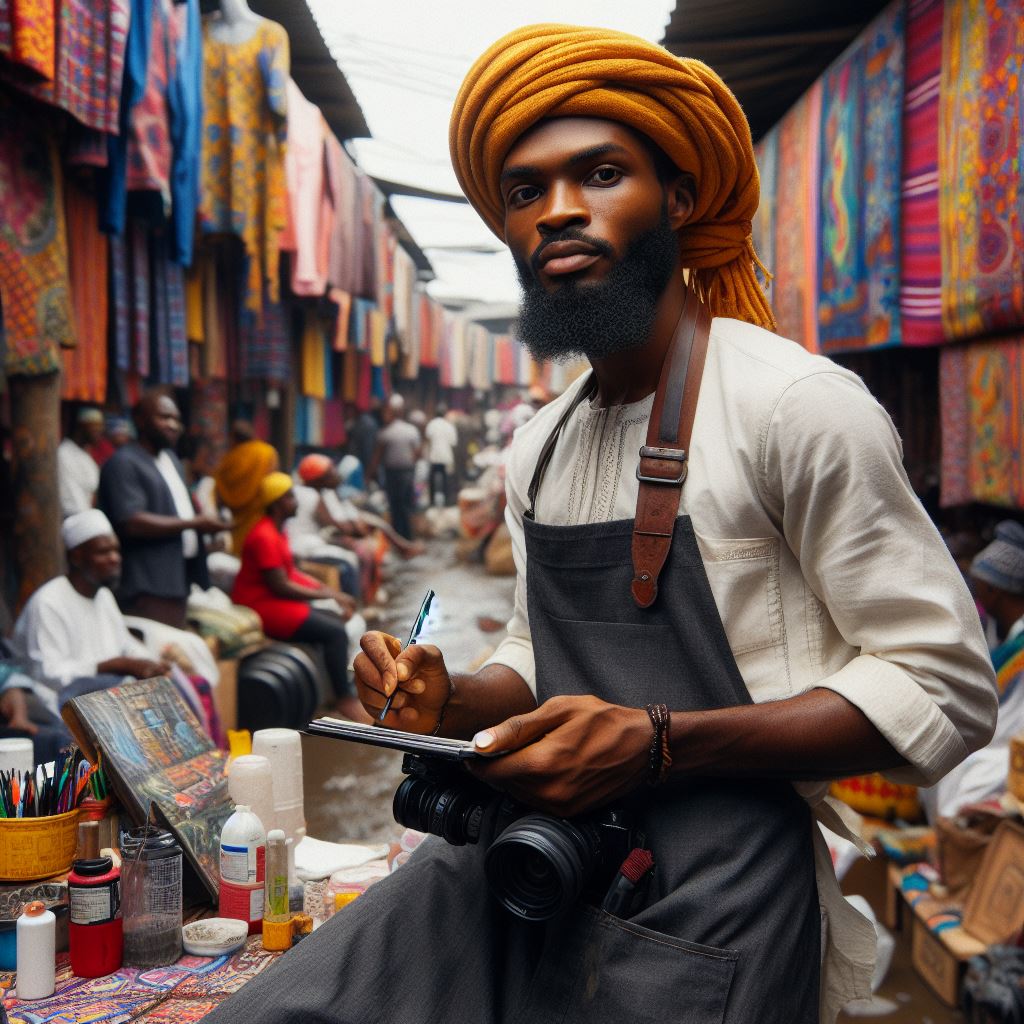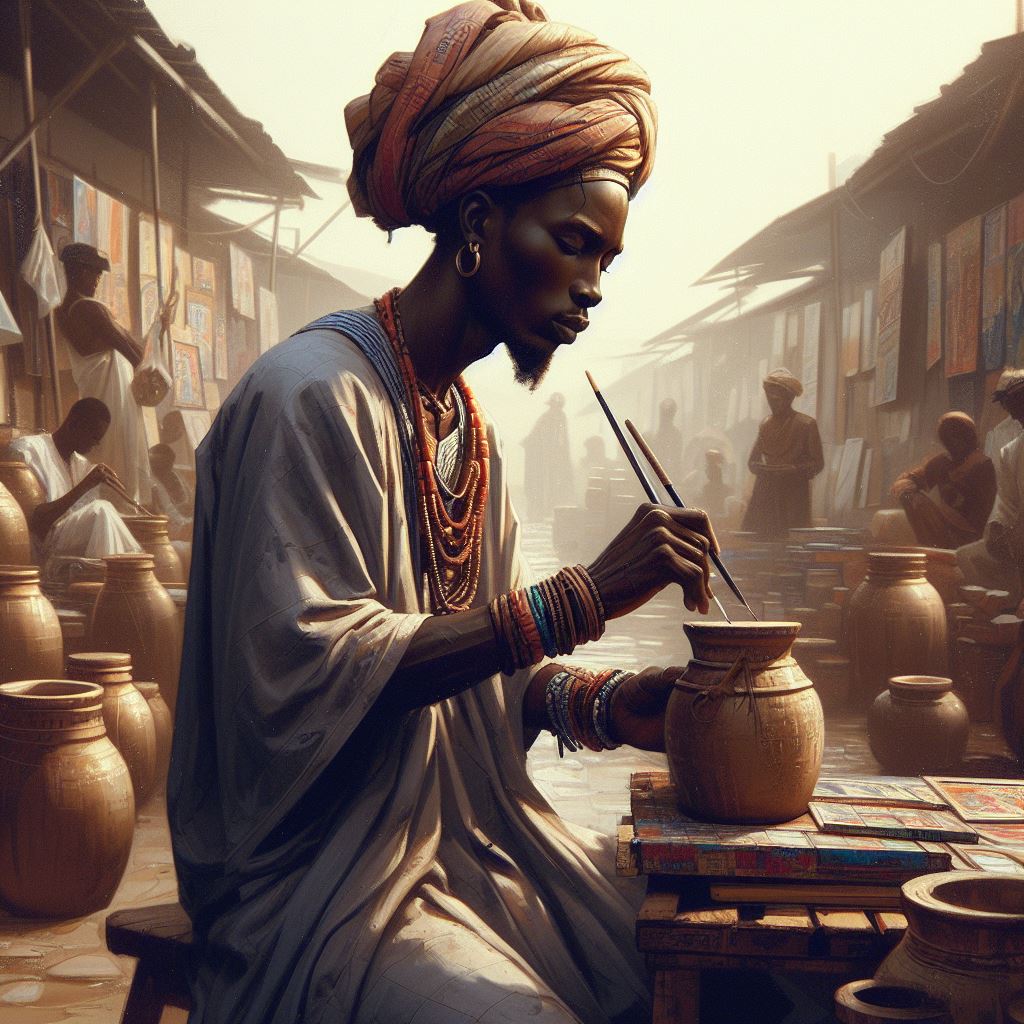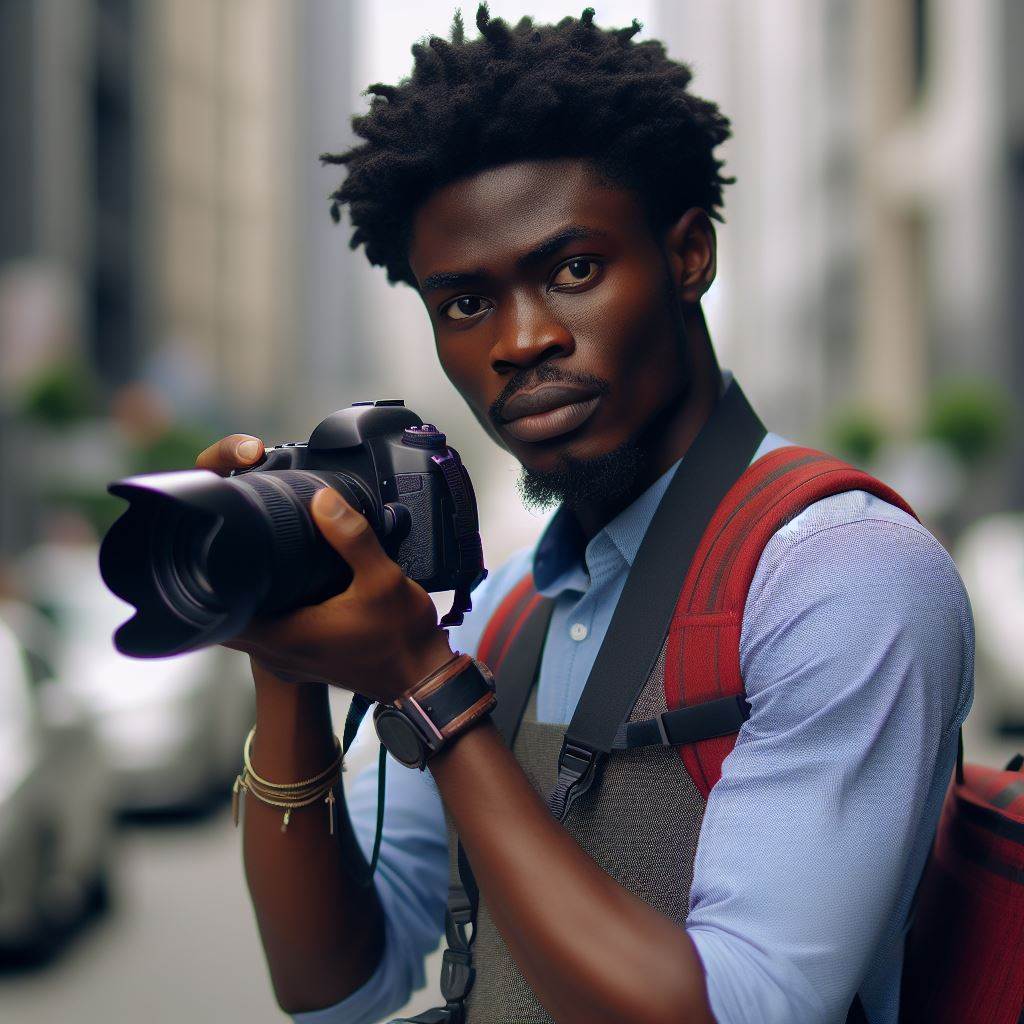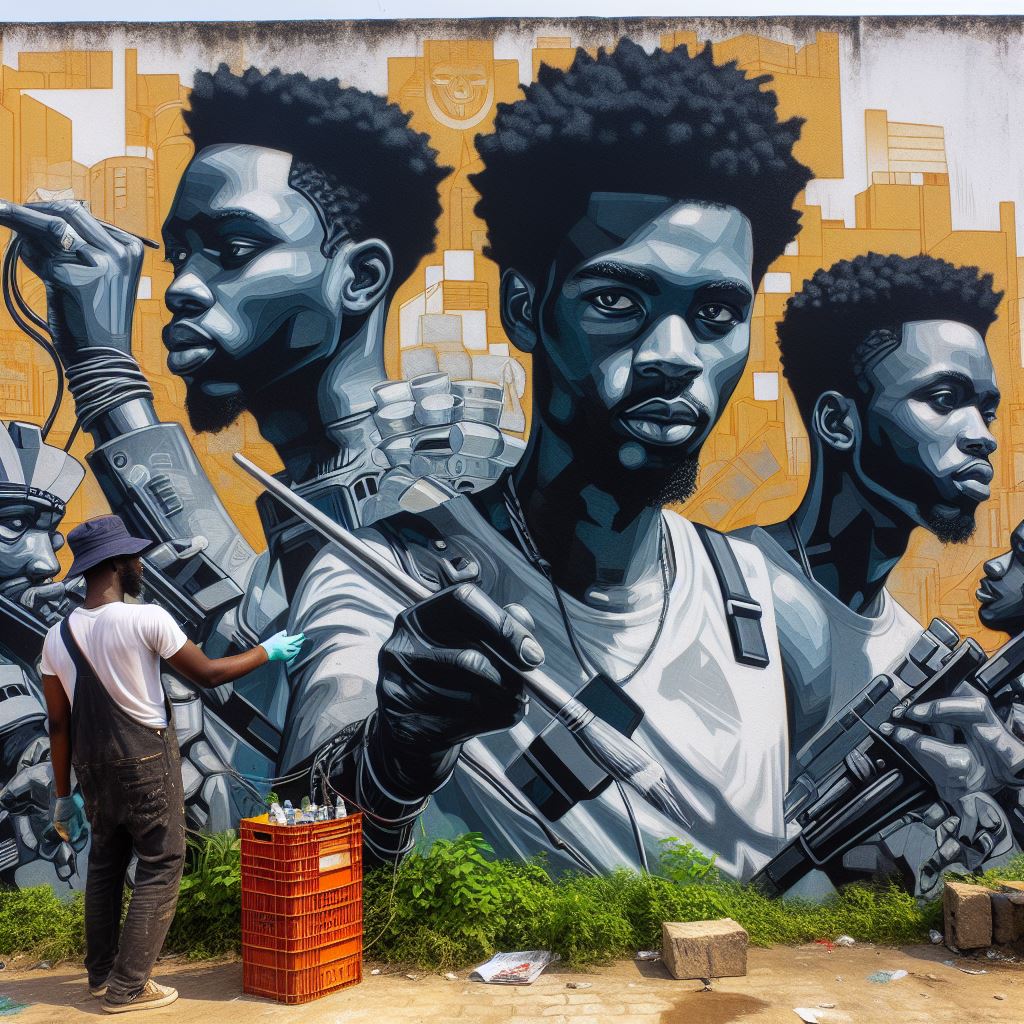Introduction
Photography as an art form involves creating visual narratives through captured images.
It blends technical skill with creative vision, allowing photographers to convey emotions, stories, and perspectives uniquely.
In Nigeria, photography has a rich history dating back to the colonial era, where early photographers documented cultural practices, significant events, and everyday life.
Photography plays a crucial role in preserving memories and documenting society’s evolution.
It captures fleeting moments, offering a visual record of history and culture.
Through their lenses, Nigerian photographers tell compelling stories that resonate locally and globally.
Their work provides insight into Nigeria’s diverse landscapes, people, and traditions, contributing significantly to the nation’s artistic heritage.
By documenting everyday life, ceremonies, and significant events, photographers help preserve Nigeria’s rich history.
Photography also serves as a powerful tool for social change, highlighting issues and inspiring action.
In the digital age, Nigerian photographers use social media to reach wider audiences, further amplifying their impact.
In summary, photography in Nigeria is a vital applied art that captures moments and tells stories.
Its historical roots and modern applications showcase the importance of this medium in reflecting and shaping the nation’s cultural narrative.
Development of Photography Industry in Nigeria
The photography industry in Nigeria has experienced significant growth over the years, evolving from a hobby to a thriving business sector.
This growth can be attributed to several factors that have shaped the industry and propelled it to its current status.
Growth of Photography as a Business in Nigeria
Photography as a business in Nigeria has seen tremendous growth due to the increasing demand for quality visual content.
With the rise of social media and digital marketing, there is a growing need for professional photography services.
This has created a lucrative market for photographers who cater to various niches such as fashion, weddings, events, and commercial photography.
Moreover, the accessibility of photography equipment and technology has made it easier for individuals to start their own photography businesses.
This has led to a boom in the number of photographers offering their services in different regions of Nigeria.
Emergence of Professional Photographers
The emergence of professional photographers in Nigeria has elevated the standard of photography in the country.
These professionals undergo training, acquire technical skills, and keep abreast of industry trends to deliver high-quality images to their clients.
Professional photographers in Nigeria specialize in different genres of photography, such as portrait, landscape, product, and documentary photography, among others.
Their expertise and creativity have contributed to the growth of the industry and earned them recognition both locally and internationally.
Impact of Technology on Photography in Nigeria
Technology has played a significant role in shaping the photography industry in Nigeria.
The advent of digital cameras and editing software has revolutionized the way images are captured, edited, and shared.
This has made photography more accessible to a wider audience and has expanded the creative possibilities for photographers.
Furthermore, the growth of social media platforms and online marketplaces has provided photographers with new avenues to showcase their work and reach potential clients.
Digital marketing tools have also made it easier for photographers to promote their services and attract a larger client base.
Essentially, the development of the photography industry in Nigeria has been fueled by the growth of photography as a business, the emergence of professional photographers, and the impact of technology on the industry.
With the continued evolution of the industry and the increasing demand for visual content, photography in Nigeria is poised for even greater success in the future.
Read: Communication Arts: Balancing Theory and Practice
Role of Photography in Nigerian Society
Documenting cultural events and traditions
- Photography serves as a visual record of cultural events and traditions in Nigeria.
- It captures the essence of ceremonies, festivals, and rituals, preserving them for future generations.
- Photographers document the diverse cultural practices and customs of different Nigerian ethnic groups.
- Through photography, these traditions are shared with a wider audience, promoting cultural understanding and appreciation.
Promoting tourism through visual storytelling
- Photography is a powerful tool for showcasing the natural beauty and cultural heritage of Nigeria.
- Stunning images of landscapes, landmarks, and people attract tourists to the country.
- Photographers capture the essence of Nigeria’s tourist destinations, enticing visitors to explore the country.
- Visual storytelling through photography helps to market Nigeria as a desirable tourism destination.
Influencing social change and advocacy through visual activism
- Photography plays a vital role in raising awareness about social issues and advocating for change.
- Documentary photographers capture images that highlight injustices, inequality, and human rights violations in Nigerian society.
- Through visual activism, photographers spark conversations and mobilize action for social change.
- Photographs have the power to ignite empathy, challenge perceptions, and drive positive social transformation.
Generally, photography in Nigeria serves as a powerful medium for documenting cultural events, promoting tourism, and influencing social change.
Photographers play a crucial role in capturing the essence of Nigerian society and shaping narratives that resonate with audiences locally and globally.
Read: How to Apply for Communication Arts Programs
Challenges Faced by Photographers in Nigeria
Photography as an applied art in Nigeria comes with its fair share of challenges that hinder the growth and development of the industry.
Below are some of the key challenges faced by photographers in the country:
Lack of Access to Modern Equipment and Technology
One of the major challenges faced by photographers in Nigeria is the lack of access to modern equipment and technology.
Many photographers in the country struggle with outdated cameras, lenses, and editing software, which affects the quality of their work.
In a competitive industry like photography, having access to the latest equipment and technology is crucial for staying relevant and attracting clients.
Limited Opportunities for Formal Training and Education in Photography
Another challenge faced by photographers in Nigeria is the limited opportunities for formal training and education in photography.
While there are some photography schools and workshops available in the country, they are often expensive and not easily accessible to aspiring photographers from less privileged backgrounds.
This lack of formal training can hinder the growth and professionalism of photographers in Nigeria.
Copyright Infringement and Intellectual Property Issues
Copyright infringement and intellectual property issues are also significant challenges faced by photographers in Nigeria.
Many photographers struggle to protect their work from being stolen or used without permission, leading to financial losses and a lack of recognition for their creative efforts.
The lack of strong copyright laws and enforcement mechanisms in the country make it difficult for photographers to safeguard their intellectual property rights.
Therefore, photographers in Nigeria face a range of challenges that impact their ability to thrive and succeed in the industry.
Addressing issues such as lack of access to modern equipment, limited training opportunities, and copyright infringement requires concerted efforts from both photographers and policymakers to create a more conducive environment for the growth of photography as an applied art in Nigeria.
Read: Introduction to African and Asian Studies in Nigeria
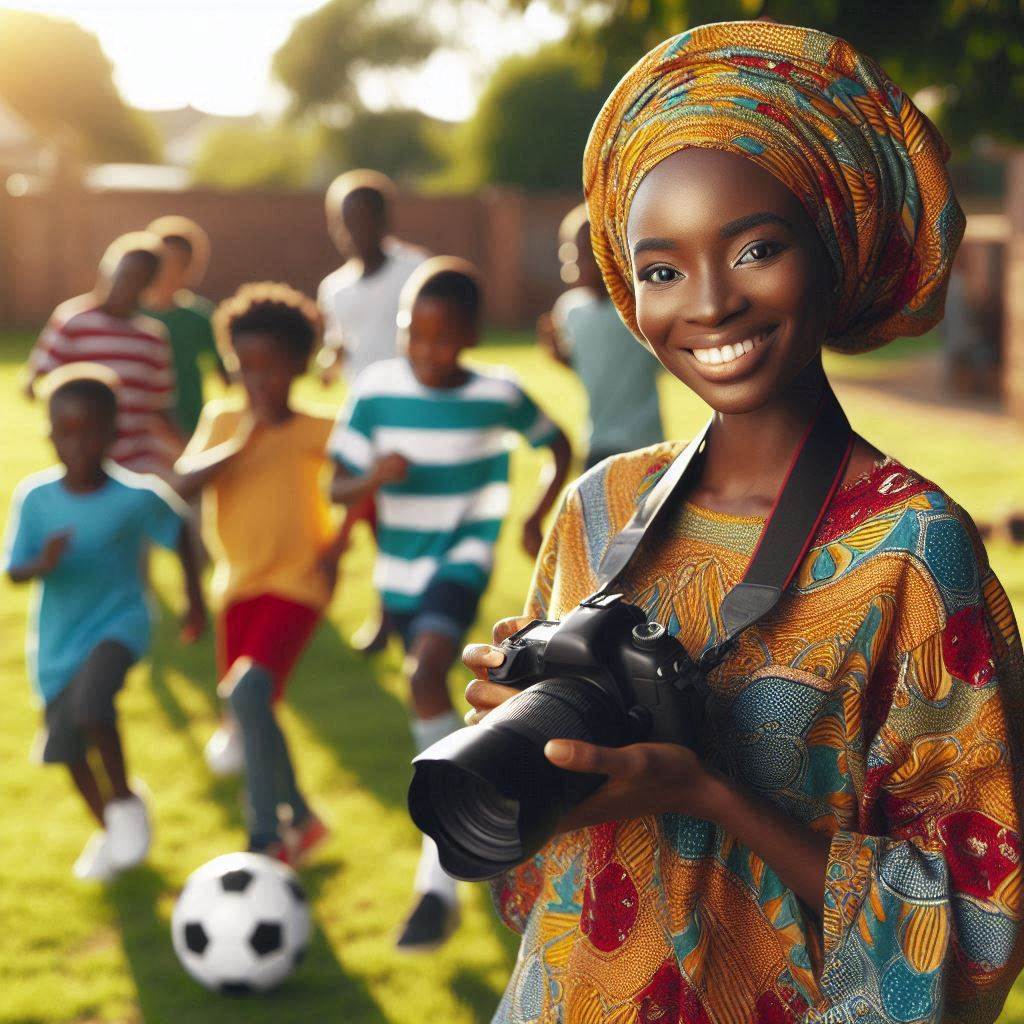
Success Stories of Nigerian Photographers
Profiles of Successful Nigerian Photographers
- Kelechi Amadi-Obi: Renowned for his fashion photography, Amadi-Obi’s work has been featured in top magazines.
- TY Bello: Known for her portraits, Bello’s iconic image of Olajumoke Orisaguna went viral.
- George Osodi: Documenting Nigeria’s culture and social issues, Osodi’s work has been exhibited globally.
- Yetunde Ayeni-Babaeko: Specializing in fine art photography, Babaeko’s work captures the beauty of Nigeria.
- Aisha Augie-Kuta: Augie-Kuta’s photography focuses on empowering women and highlighting social issues in Nigeria.
Recognizing Achievements and Contributions of Nigerian Photographers
Nigerian photographers have made significant contributions to the art world, both locally and internationally.
Their unique perspectives and creativity have helped shape the narrative of Nigeria through visual storytelling.
Their work has brought attention to social issues, cultural heritage, and everyday life in Nigeria.
By capturing the essence of the Nigerian people and landscapes, photographers have created a visual archive of the country’s history.
Examples of Iconic Photographs that Have Made an Impact in Nigeria
- Kelechi Amadi-Obi’s fashion photography has redefined the industry in Nigeria, setting new standards.
- TY Bello’s portrait of Olajumoke Orisaguna transformed her life, highlighting the power of photography.
- George Osodi’s documentary work sheds light on important issues in Nigeria, sparking conversations.
- Yetunde Ayeni-Babaeko’s fine art photography captures the beauty and complexity of Nigerian culture.
- Aisha Augie-Kuta’s empowering images of women challenge stereotypes and empower marginalized communities.
Read: Digital Media Trends in Communication Arts
Discover More: Insights from Successful Nigerian Film Directors
Opportunities for Growth and Innovation in Nigerian Photography
Collaboration with other artistic disciplines
Collaboration with artists in disciplines such as painting, sculpture, or dance can lead to innovative projects.
Photographers can learn new techniques and perspectives from working with professionals in different fields.
Cross-disciplinary collaborations also open up opportunities for exhibitions and joint projects that merge different art forms.
By combining photography with other art forms, Nigerian photographers can create unique and compelling works that stand out.
Utilizing social media and digital platforms to showcase work
Social media has become a powerful tool for photographers to share their work and reach a wider audience.
Platforms like Instagram, Facebook, and Twitter allow Nigerian photographers to showcase their images and engage with followers.
Online portfolios and websites are essential for photographers to display their work in a professional and accessible manner.
Utilizing social media effectively can help photographers build a strong online presence and attract potential clients.
Exploring new techniques and styles to push boundaries in photography
Innovation is key to growth in photography, and Nigerian photographers should constantly experiment with new techniques and styles.
Exploring alternative processes like cyanotype or pinhole photography can result in unique and original images.
Pushing the boundaries of traditional photography by incorporating elements of surrealism or abstraction can lead to exciting results.
Continued exploration and experimentation are essential for photographers to stay relevant and evolve in their practice.
Conclusion
Photography as an applied art is vital in Nigeria.
It captures the nation’s rich culture, history, and everyday life.
Through their lenses, Nigerian photographers tell powerful stories and document significant moments.
Their work preserves cultural heritage and promotes social awareness.
Aspiring photographers should pursue their passion and hone their skills.
Their unique perspectives are invaluable, offering fresh insights into Nigeria’s diverse society.
They can learn from established photographers, attend workshops, and practice regularly to develop their craft.
By doing so, they contribute to the vibrant tapestry of Nigerian art.
Support and recognition of Nigerian photographers are essential.
Attend exhibitions, purchase their work, and share their stories to wider audiences.
Encourage global art communities to recognize and celebrate Nigerian photographers.
Highlighting their achievements can lead to greater appreciation and opportunities.
Your support can help elevate their status and ensure their contributions are appreciated worldwide.
Embrace and promote Nigerian photography today to enrich the global art scene.
Together, we can ensure that Nigerian photographers gain the recognition they deserve and continue to inspire future generations with their compelling visual narratives.

